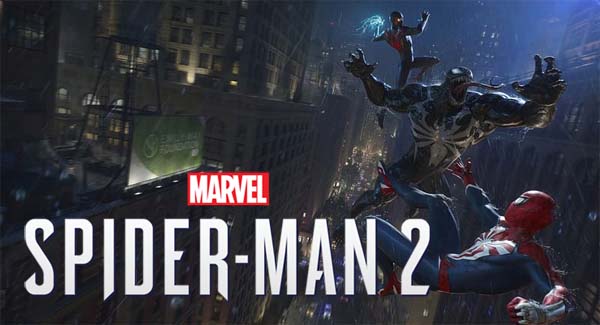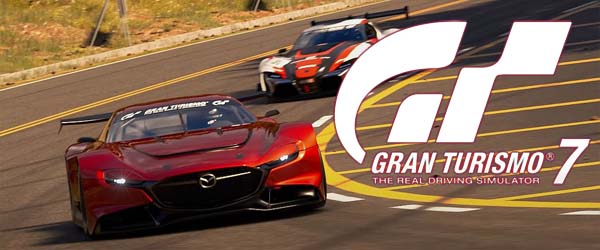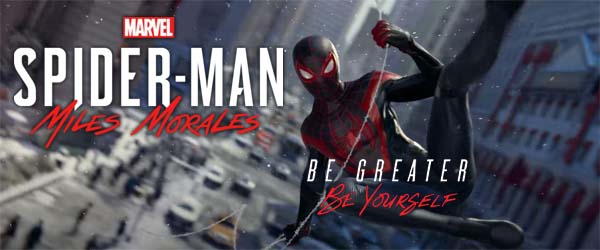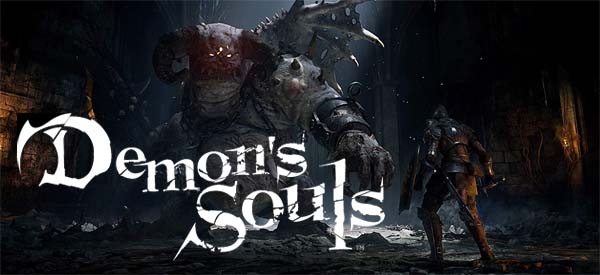
I'm not going to hold back on spoilers in this review, so read on at your own risk. If you want my non-spoiler opinion of the game (and didn't already get it from the grade above): it's good. It's not the watershed, lightning-in-a-bottle experience like the first game was though. It makes some smart changes, including some that seem to be based directly on feedback from the first game. But it also undercuts some of those smart changes with other changes and additions that aren't so smart. Bottom line though: if you liked the first game (and who didn't?), then you'll almost certainly also like this sequel.
I always get a little bit worried whenever an adaptation of Spider-Man decides to adapt the Venom storyline. It is usually where an adaptation goes off the rails. And even if it manages to stay on the rails, it's usually one of (if not the) weakest storyline of the adaptation. Whether it's Sam Raimi being forced by Sony to write the black suit and Venom into his 3rd Spider-Man movie, Spectacular Spider-Man depicting Peter and Eddie Brock as childhood friends, or Web of Shadows just being completely bonkers from start to finish, the appearance of the black suit always makes me nervous. Honestly, I think the 90's Animated Series is the only adaptation of Spider-Man that has ever hit the black suit and Venom storyline out of the park. It's Saturday morning cartoon nature means it completely fumbled the ball when it came time for Carnage though...
The black suit and Venom storylines is where a lot of Spider-Man adaptations go off the rails.
Surprisingly, Insomniac's take on the symbiote storyline takes a lot of inspiration from other Spider-Man adaptations, almost as if they think they can take poorly-received Venom storylines and improve on them. It starts off with the Sandman as a prologue villain before setting Harry Osborne up for a turn towards villainy, which closely mirrors Sam Raimi's Spider-Man 3. Then it turns Harry Osborne into Venom, as in the Ultimate Spider-Man cartoon, before basically turning into Web Of Shadows in the final act. The black suit itself also changes over time to reflect how close it is to taking over Peter's mind, which is an idea introduced in Spectacular Spider-Man. Also, the symbiote is a cure for cancer, and Venom's host being a childhood friend of Peter's are both borrowed from the Ultimate Spider-Man comics (and the Ultimate video game).
So yeah, a lot of Marvel's Spider-Man 2 resembles other adaptations of the Venom storyline, but yet it's still all put together in a way that feels original and works fairly well. It's still nowhere near as good as the Animated Series' Venom arc though, because Spider-Man 2's story and plotting is far from perfect.
[More]
8757551a-5263-46c0-90a4-659d55befe69|0|.0
Tags:Spider-Man, Marvel's Spider-Man 2, Marvel Comics, Insomniac Games, Sony, PlayStation 5, Peter Parker, Miles Morales, Harry Osborn, Norman Osborn, symbiote, Venom, Kraven the Hunter, Curt Connors, the Lizard, cancer, open world, exploration, web-swinging, New York, Manhattan, Queens, Brooklyn, Coney Island

I recently published a video to YouTube explaining how playing Gran Turismo 7's weird campaign reminded me of why I stopped playing Gran Turismo games to begin with. This video is not a full review of Gran Turismo 7, since I don't do video reviews. It's more a retrospective of my history with the franchise, why I chose to buy GT7, and my reaction to the game's campaign and reward structure. Not to mention some obligatory jabs at the game's awful, scammy, and borderline fraudulent bait-and-switch monetization scheme. Even though this isn't a proper review, it does echo much of the content of my original blog review, so I invite you to check that out. And since the review already contains most of the points made in the video, I'm not going to transcribe the entire video in text.
Gran Turismo 7 reminded me why I stopped playing Gran Turismo.
In summary, I have felt that since around Gran Turismo 4, the games have shifted to being more about collecting cars than about actually driving or racing them. Reward cars are given out like candy, leading to a garage full of cars that I never drive and which I don't feel I really earned. There's no attachment or sense of ownership over the cars, and they just don't feel like my cars in the way they did in the first Gran Turismo. That first game required greater investment to win prize cars, making them feel more earned, and it put a greater emphasis on tuning the cars in the garage to get the best performance out of them. Buying my own cars and meticulously tuning them really created that sense of ownership that is just lacking in GT7.
I also want to emphasize that I do not hate Gran Turismo 7. Even though I dislike the campaign and its reward structure, and even though the monetization model is despicable, the actual driving is absolutely fantastic! Especially with the Dual Sense controller on the PS5. I am particularly impressed with how well the Dual Sense's motion controls work for steering the car. There's some nifty haptic feedback features as well, but steering the car with the motion sensor is an absolute game-changer. So the campaign may suck, but I'm still playing GT7 on a regular basis because of how much I enjoy the driving. I've been alternating between GT7 and Elden Ring.

So anyway, I hope you enjoy the linked video. Feel free to share your own experiences with the game in the comments, either here on the blog, or on the YouTube video. And remember, all my content is funded by the support of readers and viewers like you through Patreon. So if you enjoy this content, I hope you'll consider contributing to help support the creation of further content. And if you do decide to join as a Patron, then, first of all: thank you! And secondly, don't forget to fill out the Patreon Entry Survey and tell me what content you enjoy the most. [More]
399a22fb-8511-4ab1-b635-e2dadc105c07|0|.0
Tags:Gran Turismo, Gran Turismo 7, Sony, PlayStation 5, Dual Sense controller, adaptive trigger, motion control, haptic feedback, Polyphony, car, history, racing, driving, steering, collecting, Pokemon, pre-order, micro-transactions, grind, always online, YouTube

I could've played Miles Morales on the PS4 back when it was released in November of 2020, but I really wanted to wait until I got a PS5. So I waited. And waited. Eventually, my number on Sony's waiting list came up, and I got a PS5 just in time for Christmas. Miles Morales, Demon's Souls, and Returnal were the first games I bought for it.
Early set pieces put a large emphasis on protecting civilians and reducing collateral damage.
If you liked Marvel's Spider-Man for the PS4 -- and who didn't? It was great! -- then Miles Morales is largely more of the same, but with the distinct urban flavor that comes with the Miles Morales story, and a story about corporations using "not in my backyard" politics to exploit under-privileged communities. Combat is virtually unchanged, aside from a few new gadgets and powers, and the locomotion is even more identical. So pretty much everything positive that I had to say about that game also applies to this game, and I'll try to keep this review short by not retreading the same praise and critiques.
There is a greater emphasis early in the game on trying to protect civilians. This is a welcome change, and I wish Miles Morales would have gone a bit further with it. Protecting civilians is a large component of early setpieces, but it is largely dropped once the story gets started proper. It's a shame that this isn't carried through into the rest of the game, since a major theme of the story is Miles serving as a protector for the under-privileged, mostly ethnic minority, population of Harlem.
Spider-Man has always been a hero for the common folk,
but this Spider-Man is also a hero for the under-privileged and down-trodden.
Christmas vacation
The campaign itself is also considerably shorter than the first game, taking place entirely during the Christmas season. I have mixed feelings about that. On the one hand, it's nice to have a more focused, 20 or 30 hour campaign. I have other shit to do, and it's nice to be able to finish a game's story without feeling like I have to play it every waking moment of my free time for weeks or months on end. And that 20-30 hours isn't just the story; I actually completed 100% of the side activities in that time as well.
On the other hand, playing as a younger Spider-Man just learning the tricks of the trade would seem like it would be well-suited to a longer, multi-faceted campaign with a series of escalating challenges and threats. It would have been nice to see Miles start out by focusing more on fighting petty crime in the Harlem area and adjacent districts, before moving onto more widespread organized crime, and then finally the super villain threats. There's no such escalation in Miles Morales' story. It jumps straight into the big super villain story and relegates all the "friendly neighborhood" stuff to simple side quests.
Insomniac wastes no time getting to the supervillain plot.
This does also mean that it gets its super villain surprise twist out of the way early, since it's a twist that is almost as obvious as the appearance of Doctor Octopus in the previous game. On the topic of the super villain "twist", I did find it annoying that a large part of the conflict depends on the Tinkerer making such a big deal about Miles' perceived dishonesty, but the Tinkerer wasn't exactly forthcoming either. Yet Miles never points this out.
Considering how polished Marvel's Spider-Man felt, despite also having a much bigger story and more side content, I was surprised to find a number of side quests in Miles Morales that were broken. This was doubly-surprising considering that I'm playing the game well over a year after its release. That's plenty of time for Insomniac to have fixed these bugs, even if they only have a handful of people doing maintenance on the game, while the rest of the team works on Marvel's Spider-Man 2 and Marvel's Wolverine. Even more concerning is that the specific side quests that broke for me were all related to the F.E.A.S.T. storyline, which is the most narratively and thematically important line of side quests in the game. I would think these would be the most stable and polished side quests in the game.
[More]
556903ac-0173-4a4a-90af-ae55457a53ff|0|.0
Tags:Spider-Man, Miles Morales, Marvel's Spider-Man: Miles Morales, Insomniac Games, Sony, PS5, Marvel Comics, Peter Parker, open world, New York, web-swinging, civilian, venom, Tom Holland, Dual Sense controller, adaptive trigger

I used to love the Gran Turismo games. I played the shit out of Gran Turismo 1-3. I think I was even close to hitting the 100% completion threshold of GT2 (well, the max 98.2% because the game was bugged and it was actually impossible to get to 100%). 1 and 3 in particular are great games in their own right, and still hold up well today. Gran Turismo 4, however, is when the series started to lose me, due to several changes to the design philosophy of the game that all converged to make it less appealing to me as a matter of personal enjoyment.
I was able to get my hands on a fancy new PS5 over the holidays, and I'm looking for games to play on it, and also technical showcases to see what the fancy new hardware can do. I was especially curious how a simulation racing game would feel on the Dual Sense controllers, with its variety of haptic feedback features. I could see a lot of potential in that genre of game. So I bought Gran Turismo 7 for pretty much this reason alone. It was a little bit for nostalgia too. This game celebrates the 25th anniversary of the series itself. So I went ahead and purchased it for old time's sake.
I was even tempted to buy the Special Edition to get the bonus Toyota Yaris. I figured the Yaris is probably the closest I'll come to being able to drive my real-life Toyota Echo within the game. However, I suspected that if Gran Turismo 7 would be anything like GT 4 or GT 5, it would be giving away cash and cars like candy. So I didn't see any value in the other special edition bonuses, like the extra credits. I sure as hell wasn't going to spend $20 for just one virtual car that I would probably race a handful of times for its novelty before switching to more powerful cars.
A Toyota Yaris GR is already available in standard edition, so I don't see any value in the special edition.
But there's already a GR Yaris in the game anyway, so I'm not sure what is so special about the Special Edition car. Besides, the Aqua and Prius look more like my car anyway. In any case, I hate special edition bonuses, and pre-order bonuses, and retailer-specific content. It's such a cynical fucking slap in the face to us consumers to have content withheld from the game unless we buy a specific edition, or buy from a specific vendor.
Feeling the road in my hands
Anyway, I bought the game to hopefully be a showcase for the technical innovations of the PS5. Of all the games I so far own on the system, none of their use of the PS5 controller's tactile features have really lived up to the promise of the Astro's Playroom game that comes included with the PS5. I was hoping that being a Sony-exclusive, flagship title, Gran Turismo would really wow me. It does do some neat things, but I don't know that I would say that it "wow" me.
This game requires finesse with the gas and brake.
I didn't really start noticing the rumble feature effects until I got further into the game and was playing with much more powerful cars. Up until then, the rumble was mostly reserved for if I hit the rumble strips on the side of the road or actually went off the road, or if I lost traction or spun out. But it felt similar to typical video game rumble. When the cars started to get more powerful, however, I started noticing some additional rumble effects. The engine would vibrate the controller a bit more, and I would also feel a soft thud from the middle of the controller whenever the car would shift gears.
The adaptive triggers do a little bit more heavy lifting. The throttle will stiffen up if the car starts to lose traction or if trying to accelerate up a steep incline, especially in inclement weather. Even in ideal conditions, smashing the gas and hitting top speed in a straightaway will also make the controller feel unstable in my hands, sometimes to the point that I'm genuinely afraid that if I turn the steering wheel at all, I'll instantly lose control and spin out.
By the time I feel the car slipping in the rain, it's already too late.
This actually causes me to loosen my grip on the trigger and throttle down, which usually restores some stability to the car. Instead of completely losing control because I have no way to know just how lose my car's hold on the road is, the adaptive trigger helps me to maintain control by signaling that I am throttling too hard. Pulling my foot off the accelerator pedal a little is exactly what I do in real life if I start to feel my car losing its grip on the road (which happens quite often in the gusty winds of Las Vegas), and that instinct is exactly replicated in the game.
More generally, the adaptive triggers make it uncomfortable to jam on the accelerator or the brake, especially for an extended period. It really encourages slowly depressing each trigger in order to better control the acceleration or braking of the car. Again, this mirrors how a real-life car is controlled. This makes all inputs feel much more deliberate and controlled.
Steering can be done with the motion sensor.
9 and 3
The real surprise highlight of playing Gran Turismo with the Dual Sense controller is steering the cars with the motion sensor. I'm not sure if this option was available in Gran Turismo 5 or 6 on the PS3 and PS4, or if it's available on the PS4 version of Gran Turismo 7, but this is a totally new way of driving a video game car for me. And I'm actually genuinely surprised by how well it works. I chose the motion control option after I booted up the game for the first time, thinking it would be borderline unplayable, and I would switch back to the traditional analog stick steering. But holy hell, I actually stuck with it!
The motion sensor is surprisingly responsive and maps reasonably well to the motion of holding a steering wheel at 9 and 3 o'clock positions. Using this control method, and the first-person cockpit camera, I had little-to-no problem keeping my car in a straight line and steering it through corners. I even got a gold medal on all but 1 of the B-1 license tests (and all but 3 of the A-1 license tests) using the motion controls for steering.
Steering with the motion sensor is surprisingly responsive and accurate.
It is a little awkward to hold for longer races. Holding down the throttle and brake triggers can be a little bit uncomfortable, especially if I'm trying to use my middle finger for them. And trying to use other face buttons often results in my car veering a bit. Holding the controller out in front of me (where a real steering wheel would be) can also be tiring after lengthy races. Not being mounted to a dashboard means I can't rest my hands on the controller the way that I would on a steering wheel.
[More]
766fde51-f127-42a2-b7b4-fd18b028443f|1|4.0
Tags:Gran Turismo, Gran Turismo 7, Sony, PlayStation 5, Dual Sense controller, adaptive trigger, motion control, haptic feedback, Polyphony, car, history, racing, driving, steering, collecting, Pokemon, pre-order, micro-transactions, grind, always online, Toyota Yaris, Toyota Echo

I was finally able to get a Play Station 5 for Christmas. It wasn't easy. I was on a Sony waiting list for months before finally getting the email invite to purchase one. When I booted it up on Christmas Day, I tested it out by playing a few hours of the included Astro's Playroom, while I waited for my first batch of digitally-purchased games to download and install. One of the first of those games was Bluepoint's remake of Demon's Souls.
The original Demon's Souls for PS3 is one of my favorite games ever, so my expectations for the remake were quite high. I was certain that a recreation as faithful as Bluepoint's Shadow of the Colossus remake would be good, but I also felt that Demon's Souls offered a lot more opportunity for improvement compared to the much simpler Shadow of the Colossus.
Technical improvements streamline play
Obviously, the visuals are dramatically improved. There's cloth physics, weather and particle effects, really good lighting, and all the other "next-gen" bells and whistles that one would expect. But the new hardware doesn't only allow visual improvements; it also allows for some technical improvements that do dramatically improve the gameplay experience. Perhaps the best of these technical improvements is the faster load times given by the use of a solid state hard drive.
Dying isn't as much of an inconvenience thanks to faster load times.
Quicker load times make a world of difference. Obviously, it's helpful to only have to wait a few seconds before getting back into the action after dying, rather than having to wait a whole minute to try again. But the quick loading also helps with other activities in game, such as farming. Bluepoint added the ability to warp from an archstone to any other unlocked archstone in the same world, including the one you are standing at. This allows the player to reset the current level, which can be very helpful for farming certain enemies for experience or item drops, and the loading only takes a few seconds. Barely more than sitting at a bonfire in Dark Souls!
The quick load times are also useful for things like reloading the game to refresh crystal lizards, or to trade items with Sparkly the Crow.
The smoother, 60 frames per second framerate also helps make the action feel much smoother, which might hopefully spare players from having to suffer as many deaths from mis-timing dodges and parries or from mashing a button too many times and queuing up the wrong action. The game looks and feels faster and smoother, while still maintaining the slow, weighty, and methodical pace of play of the original.
I'm less impressed by the PvP netcode. I never had problems with lag or other network issues in the original Demon's Souls on the PS3. But I rarely invaded and wasn't very good at PvP, so I might not have survived invasions long enough to realize if the original netcode was laggy or unresponsive.
I've experienced a lot of lag and other network issues during PvP.
In this remake, I'm trying to make more of a point of playing the PvP more. Not only am I engaging in more invasions with the Black Eye Stone, but I'm also reviving to human to play through most levels in the hopes of encountering some invasions from other players. I'm not being invaded a whole lot, so I'm assuming that PvP isn't very active in the remake -- or maybe being on Pacific time means all the invaders are already asleep by the time I'm able to play the game later at night. But when I do have PvP encounters, I notice a lot more lag and questionable parries and backstabs than I remember seeing in the original game.
I guess the improvement in console hardware did not lead to a smoother online play experience?
Consumables can be consumed in bulk.
The single player, however, plays very smoothly, and there are other technical refinements as well. Inventory management is simplified. Multiple consumables (such as hard soul items) can be consumed at once. Excess items can be sent directly to Stockpile Thomas from within any level. The inventory screen will show how many of a given item are in your inventory and also how many are currently stored in the Nexus. And perhaps best of all, both blacksmiths can use upgrade stones and boss souls that are still in storage! No need to grab all my upgrade stones from Stockpile Thomas before warping to Stonefang to upgrade my weapons. Though, the blacksmiths can only upgrade weapons that are in your inventory, so I do have to be sure I take those with me.
This reduces a lot of the tedium of the old inventory system, while still maintaining an absolute carry capacity for the character. I don't have to warp back to the Nexus to offload items if I become over-encumbered (and then reset the whole damn level). But I also am limited in what I can bring with me into a level. I can't carry every weapon, armor, and consumable I own into every gameplay situation, as is the case in Dark Souls. I have to prepare in advance and commit to a specific loadout, making do with what I have or what I can find within the level. This maintains the scrappier, more adventurous feel of the original game.
I am pleased, and a little surprised, that Bluepoint retained the controversial item burden mechanic.
I know that the item burden was a very unpopular feature in the original Demon's Souls, but I actually rather liked how it set such strict limits on what supplies and equipment can be carried into a level. The item burden was the one feature from the original game that I thought was the most likely to get cut in any potential remake, and I'm glad that Bluepoint found a compromise that makes the system less obnoxious, but which preserves the fundamental contribution that item burden brings to Demon's Souls' design. [More]
|

| 12 | | | | | | | 60 | | 11 | | | | | | | 55 | | 10 | | | | | | | 50 | | 09 | | | | | | | 45 | | 08 | | | | | | | 40 | | 07 | | | | | | | 35 | | 06 | | | | | | | 30 | | 05 | | | | | | | 25 | | 04 | | | | | | | 20 | | 03 | | | | | | | 15 | | 02 | | | | | | | 10 | | 01 | | | | | | | 05 |
|